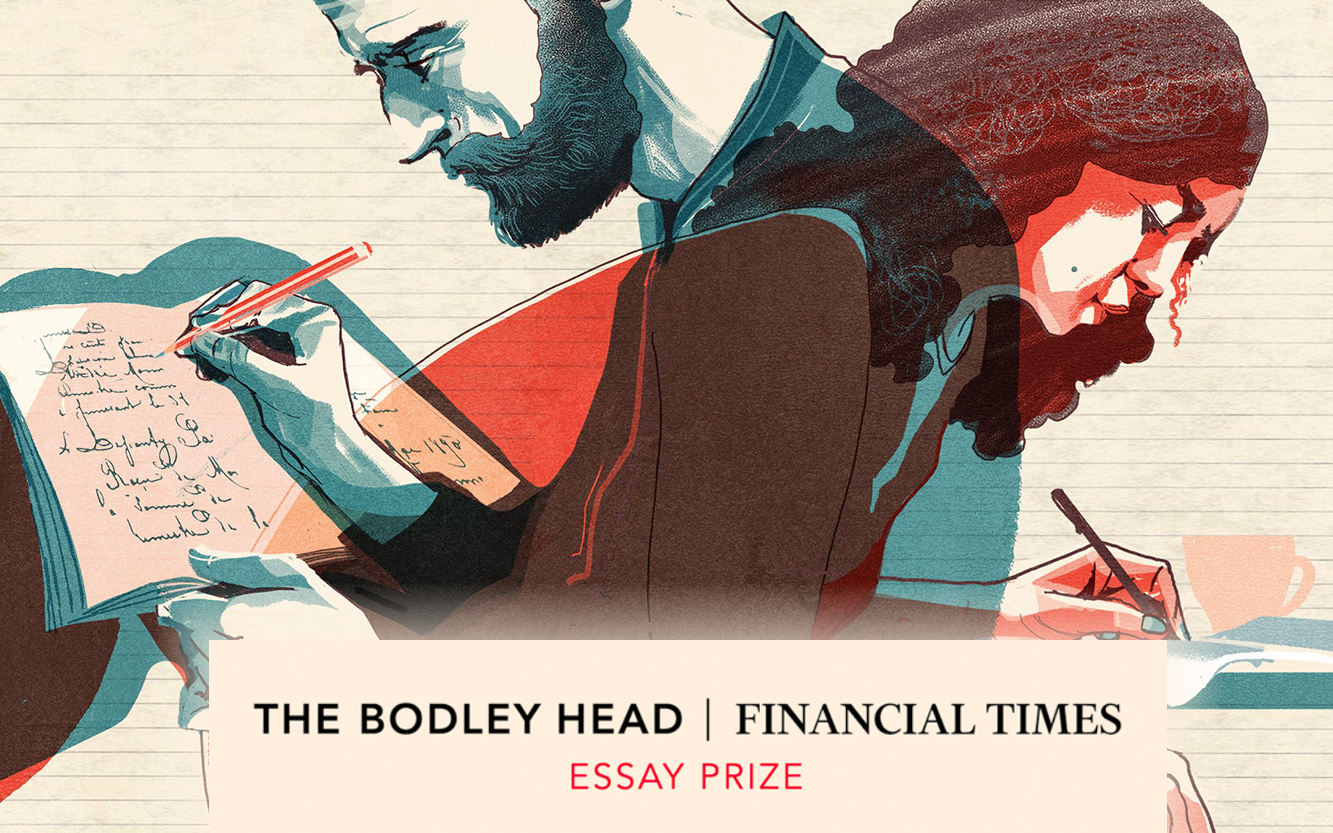- Home |
- Search Results |
- The Bodley Head and Financial Times announce their eighth annual essay prize

The Financial Times and The Bodley Head are proud to launch their eighth annual essay prize. The prize aims to discover young talent from around the world in long-form essay writing. The prize has led to many new and exciting opportunities for winners and runners-up.
- Last year’s winner Dur e Aziz Amna has subsequently been longlisted for the Sunday Times Audible Short Story Award.
- Edward Posnett won in 2014 for his essay Eiderdown and his first book, Harvest, was published by The Bodley Head on 8 August 2019 to great acclaim.
- Hedley Twidle, winner of the first Prize, is now a regular contributor to the FT.
- 2015’s winner, Laurence Blair, has also been signed up by The Bodley Head to write his first book, which expands on his essay, Dreams of the Sea.
- Adnan Sarwar, winner in 2013 has gone on to write for a number of publications and has presented on television.
What the judges are looking for
This competition is open to anyone between 18 and 35 years old.
Judges will be looking for a dynamic, authoritative and lively essay of no more than 3,500 words in English. It can be journalistic, a case study, wide-ranging or minutely focused. In keeping with the ethos of both sponsors, it can address any topic — from finance and current affairs to history and scientific discovery. We aren’t looking for a particular subject; we’re simply looking for writing that brings its subject alive, and turns the reader’s head with its style.
This year we are joined by two new judges: award-winning novelist Yiyun Li and literary agent Emma Paterson, of Aitken Alexander Associates.
Submitting your essay
Deadline for submissions is Thursday 24 September 2020 (12:00 GMT).
The winner announcement will be made in November 2020 (exact date TBC).
The winner will receive:
- £1000 and an e-publication with The Bodley Head
- Publication of their winning essay in the Financial Times and on FT.com
- A mentoring session with The Bodley Head and Financial Times
- A subscription to FT.com, and a selection of books from The Bodley Head
Two runners up will each win:
- £300 and an e-publication with The Bodley Head
- A digital subscription to Weekend FT, and a bag of books from The Bodley Head
Visit ft.com/bodley2020 to submit your essay and for further information follow the competition using #BHFTessaycomp.
Stuart Williams, Publishing Director, The Bodley Head says, ‘We’re delighted to launch this year’s prize. Reading hundreds of essays has become a revealing annual litmus test of what’s on younger writers’ minds, concerns that always range from the extremely timely to the timeless. I expect our profoundly changed world will be the catalyst for a lot of exceptional writing this year.’
Alec Russell, Editor, FT Weekend added, ‘Discovering new writing talent is one of the great privileges of being an editor. I look forward to seeing what writers around the world have to say about our strange present moment.’